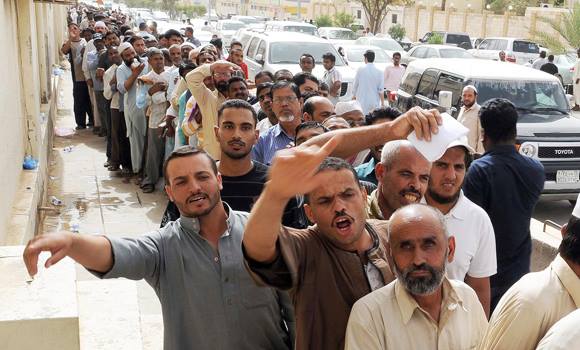
Jeddah, Jun 7: Nearly 240,000 expatriates have so far corrected their work status by transferring their sponsorship to companies where they presently work or to new employers, since the announcement of an amnesty for illegals two months ago.
“A total of 239,883 expat workers have corrected their status so far,” the Ministry of Labor said in a statement, adding that 34,262 workers on average across the Kingdom had their status corrected every week.
The ministry added that 221,262 foreign workers had changed their profession during the amnesty period, with 30,180 workers on average receiving the service weekly.
“Thus, as many as 461,145 expats have so far made use of the ministry’s services,” the statement said.
The ministry’s Riyadh offices extended their services to 78,833 workers to change their sponsorship. The Makkah region came second with 45,576 transferring their sponsorships. The Baha office had the lowest number of 2,104 transfer cases. As a result of the huge crowd of expatriates who want to correct their status before the expiry of the amnesty on July 3, the ministry has canceled the annual leave of its workers at headquarters as well as branch offices this summer.
“The leave has been cancelled to help as many expatriates as possible to correct their status,” the ministry said, adding that employees would be allowed to enjoy their leave soon after the end of the amnesty period.
“Those who wish to surrender their leave will be compensated,” the ministry said.
Employers whose foreign workers have been allowed to transfer their sponsorships without their permission would be compensated with recruitment visas if labor offices found their demand genuine.
In a related development, Brig. Mohammed Al-Anazi, director of expatriates department at the Passport Office in Riyadh, said that more than 150,000 illegals have already left the Kingdom.





Comments
Add new comment